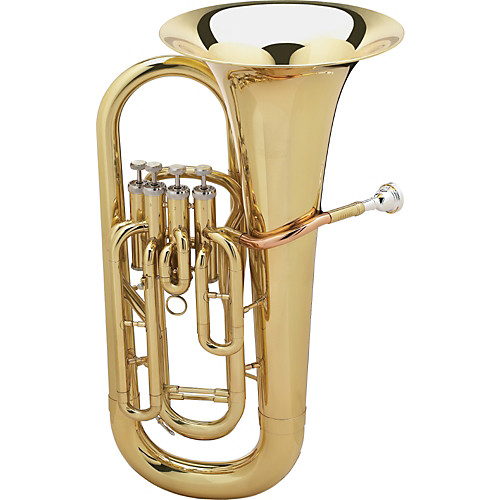
euphonium [yoo-foh-nee-uh m] ExamplesWord Origin noun
- a brass musical instrument similar to the baritone tuba but somewhat smaller, with a wider bore and mellower tone, and often having a second bell.
Origin of euphonium First recorded in 1860–65; euph(ony) + (harm)onium Examples from the Web for euphonium Historical Examples of euphonium
Mr. Mullin’s position in the Stockman band is that of euphonium soloist.
Carl Van Vechten
The pitch of the helicon is an octave below that of the euphonium.
Encyclopaedia Britannica, 11th Edition, Volume 13, Slice 2
Various
Perhaps the most remarkable place in which a burglar carried his tools was a euphonium!
The Strand Magazine, Vol. VII, Issue 39, March 1894
Various
The euphonium gives out the fundamental, or first note of the harmonic series, readily, but no harmonic above the eighth.
Encyclopaedia Britannica, 11th Edition, Volume 9, Slice 8
Various
The euphonium speaks readily in the lower register, but slowly, of course, owing to the long dip of the pistons.
Encyclopaedia Britannica, 11th Edition, Volume 9, Slice 8
Various
British Dictionary definitions for euphonium euphonium noun
- a brass musical instrument with four valves; the tenor of the tuba family. It is used mainly in brass bands
Word Origin for euphonium C19: New Latin, from euph (ony + harm) onium
 Liberal Dictionary English Dictionary
Liberal Dictionary English Dictionary